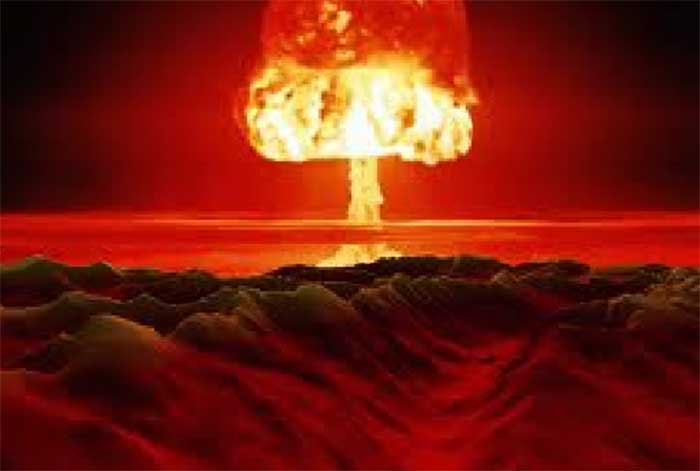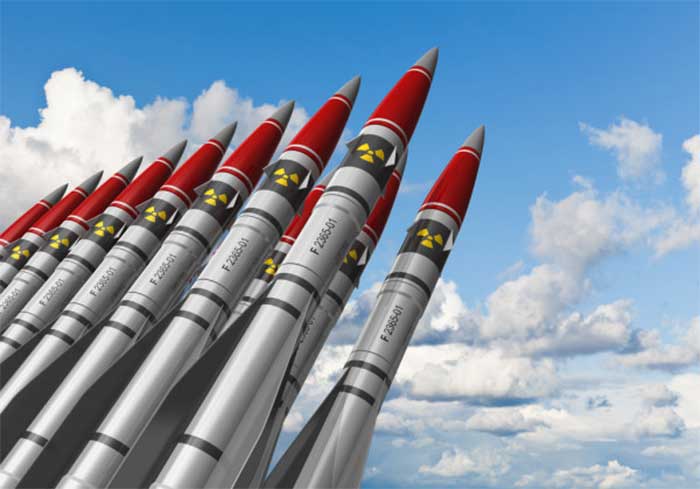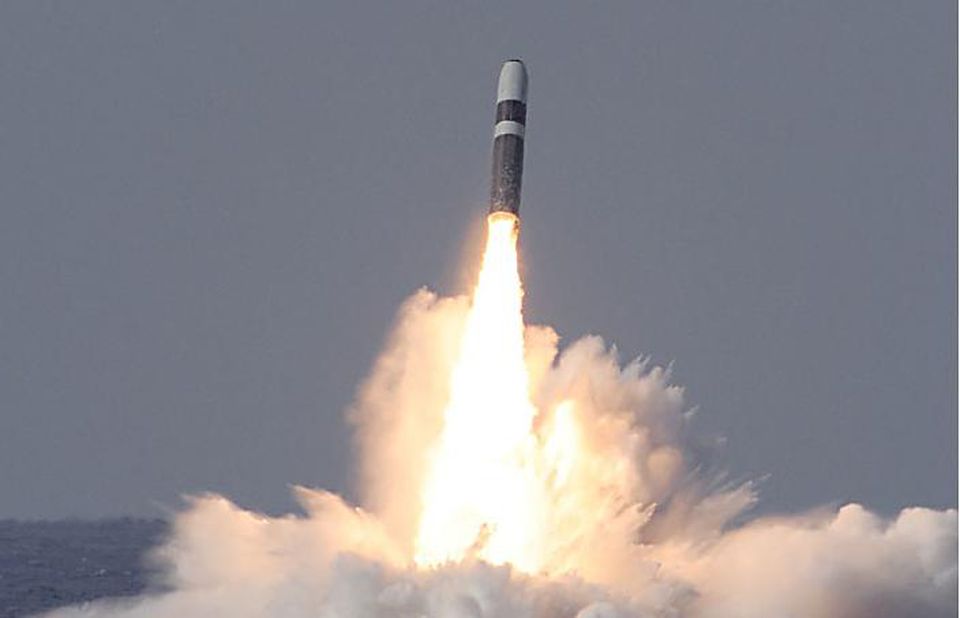
Nuclear weapons are rendered as the most dangerous threat to human civilization. At least nine countries including five permanent members of the UN Security Council presently have approximately 14000 nuclear warheads, around 4000 which are active for operation within minutes. Current versions of nuclear bombs are obviously more powerful than those hurled over Hiroshima and Nagasaki of Japan in the World War II. A single bomb can now completely destroy an entire city. Unsurprisingly, public opinions across the world are on the rise since the beginning of the Anti-nuclear Movement in the 1940s; along with peace loving countries and people, intergovernmental organizations — including the United Nations — and NGOs seek complete elimination of nuclear weapons from the world.
But a significant question still remains: is de–nuclearization — a state losing nuclear weapons program or the entirety of its nuclear inventory either voluntarily or by force — possible at all? It has no straightforward answer. In fact, there are apparent disagreements on whether nuclear weapons should be abolished. On the one hand, proponents usually argue that there is no scope of peaceful situations among great powers and, hence, there is no possibility of complete abolition of nuclear weapons from the world for security reasons. Realists consider total elimination a utopian idea that can never be realized. On the contrary, abolitionists of nuclear arsenal usually claim that it is a threat to human survival with its catastrophic consequences and, hence, it should be eliminated altogether.
Existence of nuclear warheads and nuclear development programs clearly reflect the victory of the realist stance so far. Countries having nuclear arsenal and nuclear development programs perceive these to be crucial for the protection from security threats. Treaties and agreements — both bilateral and multilateral — have hitherto been made on nuclear weapons including SORT, START I and II, and New START mostly aim at banning nuclear testing, reduction of nuclear arsenal, their prevention, etc. rather than complete abolition. Additionally, nuclear arms reduction agreements are mainly made between the USA and Russia. Though the Treaty on the Prohibition of Nuclear Weapons (TPNW) aims at complete elimination of nuclear weapons, it has not been signed by many countries, including nuclear powers, claiming it unable to reflect the reality of security environment.
Nonetheless, the undeniable fact is that the reality does not represent realist stance for all time. Up until now, four countries have disarmed nuclear weapons all in all. South Africa is the most commonly cited successful case of complete disarmament of nuclear weapons; as it appears, following the end of the apartheid regime, it voluntarily dismantled an indigenously–developed nuclear arsenal completely and entered the non–proliferation regime in the 1990s. The other three countries such as Kazakhstan, Ukraine, and Belarus which got nuclear status in 1991 — especially when the USSR collapsed after the end of the cold–war — acceded to the Nuclear Non–Proliferation Treaty (NPT) as non–nuclear states and voluntarily gave up their nuclear weapons for dismantlement.
Nuclear weapons programs, furthermore, were voluntarily abandoned by a significant number of countries across the world. As is well known, Sweden ran a nuclear program in the 1950s and 1960s for both nuclear power and weapons research but latter abandoned because of its high cost and the difficulty of developing a delivery system. In the 1970s, Brazil began a secret nuclear program parallel to civilian power program; nevertheless, it later stepped back and signed several treaties for non–proliferation. In the 1970s and 1980s, Argentina also developed a secret nuclear program but afterward abandoned it by reason of more pressing domestic security issues and signed the NPT.
It is often criticized that countries which abandoned nukes and national nuke development programs do not hold any significant position in the present hegemonistic global structure, whereas global powers, which perceive that losing a means of self–defense such as nuclear weapons can increase the vulnerability, have not abandoned nuclear weapons. Moreover, the undeniable fact is that there are some practical limitations to complete eradication of nuclear arsenal including complex technical process and the problem of verification. As is rightly said, there is a complex technical process of weapons elimination, disposition of nuclear and other associated radioactive materials, and dismantlement of the infrastructure that produce nuclear devices and materials as well as the means of delivery.
On most occasions, security strategists say that it is really a difficult task to confidently verify that every country possessing nuclear arms abolishes with confirmation and honesty. The verification problem consequently raises a number of crucial questions: What will happen if one country keeps nuclear arms while others destroy? Will not such a situation be more dangerous? Is there any guarantee that countries having know–how won’t later make nuclear bombs after abolition? These are surely unavoidable dangers with unplanned de–nuclearization. Yet, is it not simultaneously undeniable that countries abandoning nukes or nuke development programs show the light of hope for total de–nuclearization in the future?
I believe that geo–politics and pursuance of leadership position in the world order are possible without nuclear arms at present too. In fact, before the development of nuclear bombs the world had leaders. It is now crucial for all nuclear powers and states having nuclear programs to realize that nuclear weapons do not give security as deemed, and that it is rather a type of weapon which can destroy all including global powers, given that any nuclear war occurs defying existing treaties and agreements. For security of all, the world should, therefore, make de–nucleariztion possible, even if it may be difficult to eliminate nuclear bombs suddenly due to the problem of verification and some other reasons.
In my opinion, all nuclear powers and countries having nuclear programs may make some promising efforts probably with the TPNW or any other legally binding treaty — which reflects all genuine concerns of underlying security threats — aiming at securing complete nuclear disarmament someday in phase by phase approach. Of course, nuclear powers should make sure that nuclear weapons are not used in any warfare; in addition, the United Nations and NGOs including the International Campaign to Abolish Nuclear Weapons need to play crucial roles for the realization of de–nuclearization goal. But public voice in favor of complete nuclear disarmament needs to be made consistently stronger across the world.
Amir Mohammad Sayem – Researcher and writes of Op-eds on miscellaneous issues including social, environmental, political, public health and international relations Dhaka, Bangladesh
Email:[email protected]
SIGN UP FOR COUNTERCURRENTS DAILY NEWSLETTER













































